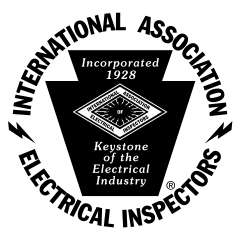Home inspectors and real estate agents work hand in hand. Home inspectors and real estate agents work together closely, so they should have a good relationship, right? But unfortunately, that isn’t always the case.
What gets in the way of these two professionals working harmoniously? Real estate agents want you to know what drives them nuts about some home inspectors.
They’re alarmists:
No home is going to be perfect — not even a new home.  Older homes, in particular, will have flaws. It’s what makes them affordable. Of course, no one wants an unsafe home. But a few skinny cracks in the stucco or the absence of a dryer vent, while not advantageous, are not good reasons to avoid buying a house. If either of these issues bothers you, you can change them after the closing.
Older homes, in particular, will have flaws. It’s what makes them affordable. Of course, no one wants an unsafe home. But a few skinny cracks in the stucco or the absence of a dryer vent, while not advantageous, are not good reasons to avoid buying a house. If either of these issues bothers you, you can change them after the closing.
They don’t know what they’re doing:
 Not every state requires home inspectors to get training or a license or even pass a test. Thus, anyone could hang a shingle out and claim to be a home inspector. These “inspectors” may miss important problems that could cost the buyer thousands after it’s too late. Or they may flag what they think are issues that are in fact minor flaws. The InterNACHI Inspectors must go through intense training and be involved in continual education to become certified.
Not every state requires home inspectors to get training or a license or even pass a test. Thus, anyone could hang a shingle out and claim to be a home inspector. These “inspectors” may miss important problems that could cost the buyer thousands after it’s too late. Or they may flag what they think are issues that are in fact minor flaws. The InterNACHI Inspectors must go through intense training and be involved in continual education to become certified.
Some people assume that what a real estate agent wants is for the home inspector to give the green light no matter what so that the sale goes through and they get their money. But this isn’t the case. What the real estate agent really wants is for the house to not have any problems, not for the home inspector to pretend this is the case.
Real estate agents have a name and a reputation to protect — it’s how they make their living. If they have a pool of unsatisfied customers that is only growing, it’s going to hurt their business. Real estate agents want smart, honest home inspectors.
They pass the buck:
Some home inspectors have a hard time making a judgment call. They see a crack in the foundation and wonder if it’s superficial or structural, and refer it to an eng ineer. They think there might be air leaking from the vents, but all vents leak a little air. They aren’t sure, so they defer to an HVAC specialist. Calling in a host of other experts after the housing inspection is done draws out the process, and needlessly, some real estate agents believe. It’s good to double-check your facts and figures, but if you’re working as a home inspector, you should be able to make most of the determinations on your own. Real estate agents want happy customers more than a sale at any cost.
ineer. They think there might be air leaking from the vents, but all vents leak a little air. They aren’t sure, so they defer to an HVAC specialist. Calling in a host of other experts after the housing inspection is done draws out the process, and needlessly, some real estate agents believe. It’s good to double-check your facts and figures, but if you’re working as a home inspector, you should be able to make most of the determinations on your own. Real estate agents want happy customers more than a sale at any cost.
They show up late:
 Everyone’s time is valuable. Punctuation is imperative. Too many service professionals show up late for appointments or not at all. A good real estate agent will attempt to confirm their appointment with you a day ahead. Take the time to acknowledge their confirmation, and show up for your meeting on time and prepared. During the inspection, be pleasant and friendly toward the potential buyers. You’re not adversaries; you’re there to help them.
Everyone’s time is valuable. Punctuation is imperative. Too many service professionals show up late for appointments or not at all. A good real estate agent will attempt to confirm their appointment with you a day ahead. Take the time to acknowledge their confirmation, and show up for your meeting on time and prepared. During the inspection, be pleasant and friendly toward the potential buyers. You’re not adversaries; you’re there to help them.
The home inspector/real estate agent relationship is an important one. One can’t do business without the other. For this reason, it’s important to respect their authority, listen to their concerns and do the best job you know how — for them and the potential buyers.
By ICA Blogger on April 27, 2018 in Continuing Education









